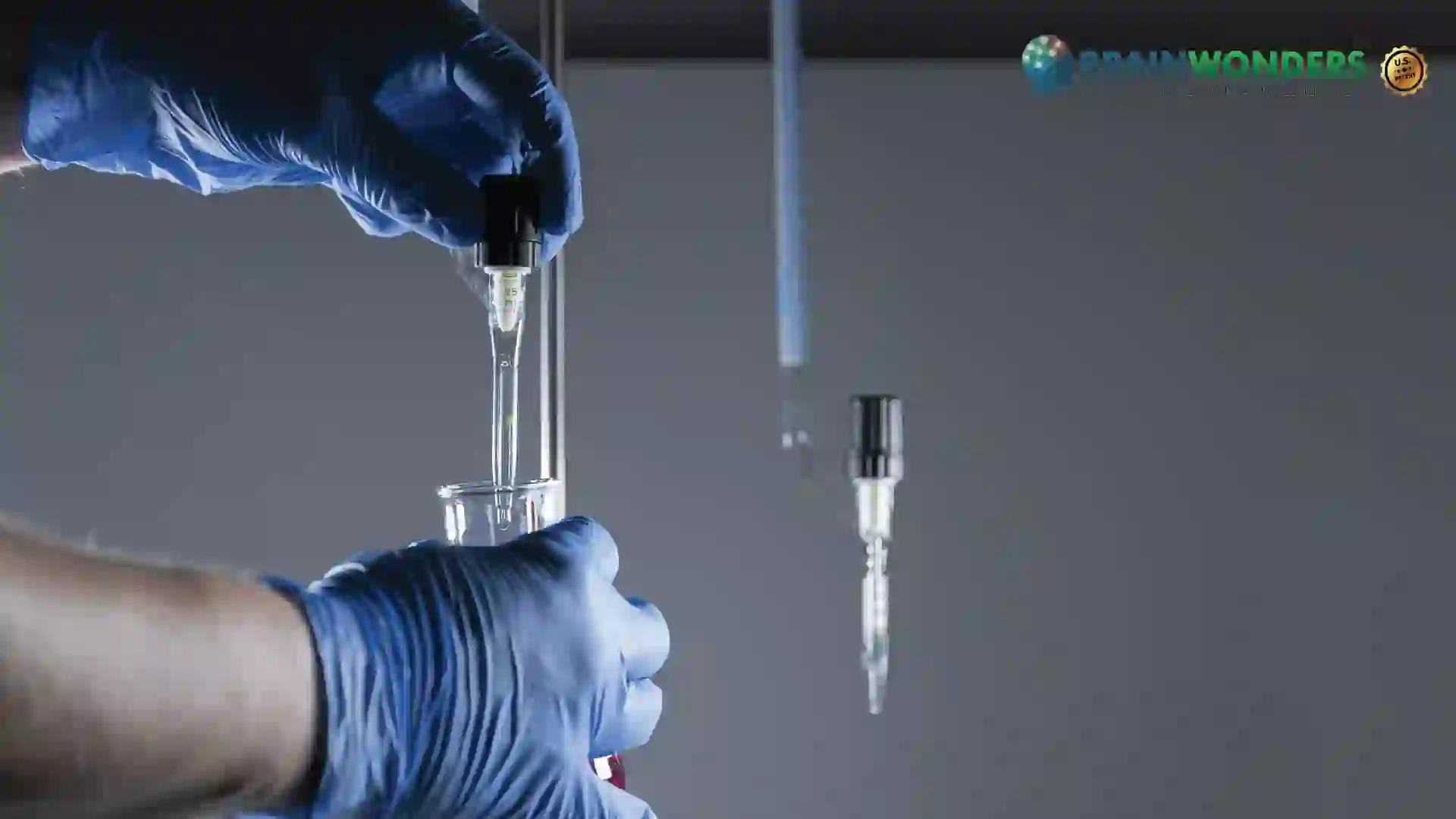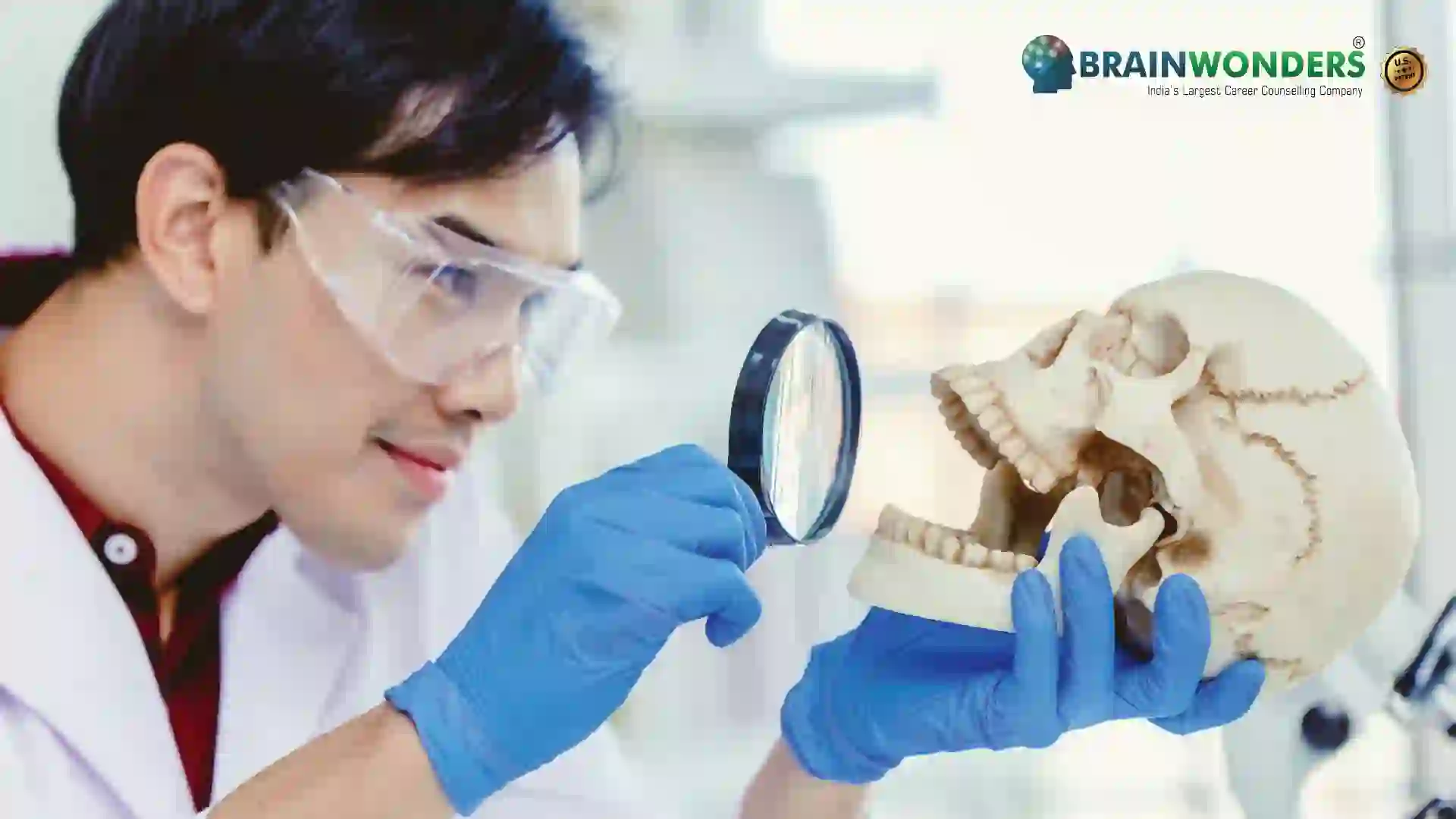How to become a Biochemist
Overview, Courses, Exam, Colleges, Pathways, Salary

Overview
Who is Biochemist ?
Most biological processes that take place at the cellular and molecular levels are chemical in nature. Different chemicals at the cellular and molecular levels work in unison to make a biological system work. It is generally a cascade of chemical reactions that leads to a cellular or organ response that leads to a particular function in the living biosystem. The study of biochemistry allows us to understand the in-depth chemical reason behind the working of any biological system. Hence, Biochemists are researchers that understand the inner engineering of cellular and molecular systems.
Biochemists are those professionals who study the chemical nature of the biological processes occurring at the cellular/molecular level in living cells of a variety of life forms, including humans, plants, and animals. Using the combined knowledge of the fields of biology, physiology, and chemistry, they examine the biochemistry of all living systems. Simply put, they apply methods of chemistry to understand the biological processes of living organisms that are responsible for producing the complexity of life. The applications of this field are far and many as it contains deep information about the workings of all living biosystems. Hence, several branches of biology and medicine take great help from the knowledge of biochemistry. Medical Science has largely worked on several biochemical diagnostic tools to understand the workings of cellular and molecular levels of a patient in order to prescribe the right medications and therapies to enhance their health and survival.
A biochemist is interested in studying organism structure, performance, growth, reproduction, metabolism, and the mechanisms of disease spread in any organism by studying the biochemical profile and composition of that organism. By understanding the biochemical aspects of any organism a biochemist deduces the different physical effects of a particular cascade of biochemical reactions that lead to that particular function. It is their work that provides explanations for the occurrence of diseases as well as suggests methods to prevent, treat, or cure the same. They can be involved in basic, exploratory research that seeks to increase scientific knowledge about biochemical processes or take up applied research to solve practical problems.
Biochemistry opens up avenues in the Medical and paramedical field by providing details about the reasons behind the regular and healthy functioning of any organ in a human along with providing details about the irregular and unhealthy functioning of that particular organ caused due to the imbalance in biochemical markers in that individual.
Typical day at work
What does Biochemist do?
Typically, a biochemist is tasked with the following responsibilities:
- Examining the physical structure of molecules in order to analyze their chemical structure and chemical bonding patterns by using preliminary chemical testing techniques followed by advanced techniques like spectroscopy and X-Ray crystallography
- Understanding the chemical composition of a particular sample molecule obtained from an organism
- Collaborate with fellow colleagues as well as experts from varying fields to conduct research
- Independently plan and design complex experiments to study the effects of relevant substances/conditions on the cellular functioning of a particular living organism and in turn on the physiological functioning of that organism.
- Manage the laboratory and its equipment, ensuring that the quantity and accuracy of the same are in accordance with the requirements.
- Oversee the work of the laboratory technicians to monitor the quality of experiments and adherence to scientific standards
- Maintain thorough documentation regarding the experiment by writing technical reports describing the method used, observations noted, and the results obtained
- Communicate the findings of the research by presenting at conferences, publishing research papers, and writing scholarly articles
- Design and build equipment for use in experiments, update protocols and develop new processes to increase the efficiency
- If the Biochemist is a part of any diagnostic team then they must carry out all biochemical assays with utmost diligence and precision since the results of that assay would determine the health and well-being of the testing patient
- A biochemist also contributes to several other kinds of biological research projects and work where there is a need to understand the chemical aspect of a living being's biological system. Many biological, medical, and paramedical researchers seek the help of biochemists to understand the chemical aspects of their work
- A biochemist has to carry out several assays on a regular basis such as fermentation of substances, culturing micro-organisms, purifying products, isolating products, toxicity screening of products, weighing, filtering, drying, and washing of products and substances
Abilities and Aptitude needed
What are the skills, abilities & aptitude needed to become Biochemist?
A biochemist must completely understand the chemistry of biomolecules and their reactive characteristics. He/She must always have an open and broad mindset toward learning new techniques for a better understanding of biomolecules and the chemistry of their functioning.
- They must have a good understanding of analytical chemistry and be well-versed with terms like molarity, morality, normality, moles, etc. This ability will give sufficient help to mathematically analyze and quantify the biomolecule and its reactions. He/she must be well-versed in organic chemistry as well. Organic chemistry provides details about the chemical bonding, structure, properties, compositions, reactions, and the molecular backbone of carbon-containing biomolecules. Since most biomolecules are organic molecules they can be easily studied properly by the understanding of organic chemistry.
- A biochemist must be well-versed with hormones, enzymes, chemical neurotransmitters, and any kind of chemical signaling molecules. All functions of an organism's body are a cascade of reactions that take place due to the signaling caused by neurotransmitters that trigger specific physiological functions in that particular organism.
- Intellectual abilities, such as research and analytical abilities: When compared to other graduates applying for similar jobs, interpreting lab data, examining reports, and understanding statistics provide you with valuable analytical experience. Biochemists use sound reasoning and judgment to conclude experimental results data handling and technical knowledge gained from using a variety of biochemistry-related and generic computer programs constitute technical and computer literacy.
- Interpersonal, teamwork, and leadership abilities: Independence, management of others, and accountability are some qualities that are desirable in any biochemistry aspirant. Your previous experiences working in a lab, giving group presentations, and mentoring other students put you in an excellent position to tackle any career that requires you to work both as part of a team and independently. Biochemists must write and publish reports and research papers, present their findings, and communicate effectively with team members. Biochemists frequently work on interdisciplinary research teams and must learn to collaborate effectively with others to achieve a common goal.
- Many people serve as team leaders and must be able to motivate and direct their colleagues. Working to tight lab deadlines with fragile reactants gives you an above-average sense of timing when compared to other graduates. The ability to plan and organize your time, which is essential in those hectic lab situations during your degree, demonstrates to employers that you are a level-headed and efficient worker. Biochemists and biophysicists must be able to carry out scientific experiments and analyses with precision and accuracy.
- Communication skills: Because communication skills are required by almost all employers, your previous experience in writing reports, giving oral presentations, and listening to complex instructions and lectures has provided you with the communication skills required for many professions. Previous work experience, presentation skills, and even personal interests can all help to foster creativity. Employers know that you have the mental tools to find novel solutions to many problems and to adapt easily based on your practical work and presentations during your degree.
- Problem-solving: An essential skill for any scientist and for careers in both science and non-science, the ability to look at a problem from multiple perspectives and find the best solution is highly valued by employers in any field. Bioscience degrees provide a wealth of problem-solving experience due to the necessity of adapting and modifying an experimental protocol to the results of lab and practical work.
- Math abilities: Biochemists frequently use complex equations and formulas in their work. They must have a solid foundation in math, including calculus and statistics.
- Perseverance: Biochemists must be thorough in their research and problem-solving. Scientific research entails a significant amount of trial and error, and biochemists and biophysicists must avoid becoming discouraged in their work.
- Time management abilities: When conducting research, biochemists are frequently required to meet deadlines. They must be able to manage time and prioritize tasks effectively while maintaining a high level of work quality.
Salary
Salary for Biochemist?
The salary of a "Biochemist" can vary based on factors such as experience, qualifications, location, the type of employer, and the specific role within biochemistry.
Minimum Monthly Salary: The monthly salary can be from INR 25,000 to INR 40,000
Maximum Monthly Salary: The monthly salary can be from INR 1,00,000 to INR 2,00,000 or more
Annual Salary: The annual salary can be from INR 3,00,000 to INR 24,00,000 or more
Highest Paying Job and Scope: The highest-paying job for biochemists can be leadership or specialized research positions within prominent research institutions, biotechnology companies, or pharmaceutical companies. The scope for biochemists is promising, with opportunities in various sectors, including academic research, pharmaceuticals, biotechnology, healthcare, food and beverage industries, and environmental conservation.
Pathways
How to become an Biochemist?
Entrance Exam
Entrance Exam for Biochemist ?
- AIIMS biochemistry entrance exam
- Amity Institute of biochemistry entrance exam
- Anna University biochemistry entrance exam
- GATE
- IIT JEE for BTech/BE Biochemical Engineering.
Courses
Which course I can pursue?
Best Colleges
Which are the best colleges to attend to become an Biochemist?
Industries
Which Industries are open for Biochemist?
- Research firms
- Pharmaceutical firms
- Hospitals
- Laboratories
- Food production firms
- Chemical manufacturers
- Fertilizer manufacturers
- Educational institutes
- Diagnostic and paramedic Centers
- Government organisations conducting extensive research
internship
Are there internships available for Biochemist?
Take the opportunity to work with experienced scientists as they continue to learn about their specialties or develop a broader understanding of related areas of research. It will allow you to have practical learning and will also give you contacts for future reference.
Several Pharmaceutical companies offer internships for biochemists on fixed research project terms.
Internships at diagnostic centers in hospitals and paramedic centers.
Internship at government hospitals and institutions where senior researchers conduct projects to conduct research on unknown biochemistry-based problems. Emailing and contacting researchers directly helps sometimes to get recruited by them for internships.
Career outlook
What does the future look like for Biochemist?
Ever since the Covid-19 pandemic the awareness for health and wellbeing has increased. Citizens are very focused on understanding their internal body workings and the best way to analyze that is by biochemical assaying. They provide complete detail about the hormonal profile, protein profile, kidney functioning, liver functioning, blood profiling, cardiac profiling, cholesterol screening, toxicological profiling, infection screening, and much more.
From 2020 to 2030, the employment of biochemists is expected to grow at a 5% annual rate, which is slower than the national average for all occupations. Despite slowing job growth, an average of 3,200 openings for biochemists and biophysicists are expected each year over the next decade. The majority of those openings are expected to result from the need to replace workers who transfer to different occupations or leave the labor force for other reasons, such as retirement.
Employment Biochemists will be required to conduct basic research that advances scientific knowledge, as well as to research and develop biological products and processes that improve people`s lives. Biochemistry and biophysics techniques, tools, and applications are expanding as technology and knowledge advance. Budgetary constraints, on the other hand, may limit researchers` access to funding for basic research. The aging population will increase the demand for new drugs and procedures to treat and prevent disease. This increased demand for biochemists and biophysicists involved in biomedical research is likely to drive demand for biochemists and biophysicists.
Biochemists, for example, will be required to conduct genetic research and develop new medicines and treatments to combat genetic disorders and diseases such as cancer. They will also be required to create new tests for detecting diseases and other illnesses. Other areas of biotechnology research and development than health are expected to provide job growth for biochemists and biophysicists. These researchers will continue to investigate topics that will help us improve our capabilities in areas such as clean energy, efficient food production, and environmental protection.
This particular stream of biology seems to always play an essential role in the healthcare industry since diseases are analyzed very largely on the bases of their biochemical manifestations. The prevention, cure, and palliative help for any disease is the leading source of research in this century.
.webp)


